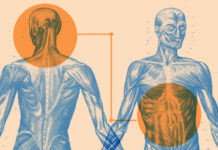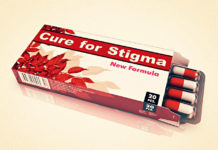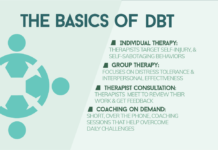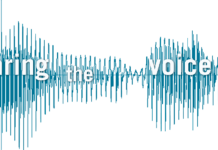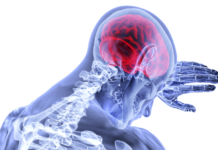Why Many Doctors Are Authoritarians – and Harmful
It is important to illuminate the authoritarian nature of mental health professionals—especially those who have not rebelled in any way against their professional socialization. Here I will summarize an analysis from the Journal of Medical Ethics on the variables in “contemporary medical culture” that produce doctors who are authoritarian and harmful.
Researchers Identify Demographic, Ideological Factors Associated With Refugee Prejudice
A new analysis finds multiple antecedents of refugee prejudice, including religiousness, conservatism, and education.
Why Are So Many Americans Seeking Medication for Distress?
How do we explain the high demand for mind-numbing chemicals in America? Is it due to the development of new, improved "medications"? Is it due to the invention of new "diagnoses"? Is it due to life here becoming more stressful and traumatic? Or is it something else? Have we become less tolerant of distress?
New Evidence for Brain-Gut Link in Depression and Quality of Life
The first ever population-level study of the brain-gut connection in humans finds evidence for a link between gut bacteria and mental health.
Youth-Nominated Social Support Reduces Mortality for Suicidal Adolescents
The Youth-Nominated Support Team intervention invites adolescents to select adults in their life to receive training on how to support them.
Psychiatric Medications: Who Decides?
One “side effect” of meds is that they can reinforce people’s passivity towards their emotions, obscuring an understanding of themselves as having agency, as being the active creators of their lives — including their emotional lives. This has to be on the table in talking with clients about whether they want medications to be part of their development picture.
I Don’t Believe in Autism
The conversation about what truly constitutes “autism” is an ongoing one. Although I resist the label personally, I do not begrudge anyone for identifying as autistic, or seeking out an autism diagnosis. Leaving this discussion within the domain of medicine is limiting. That’s why a new discourse is emerging, not among doctors, but among activists who push for autistic self-advocacy.
Psychiatry, Society and Stigma: Placing the Blame Where It Belongs
I believe that those who understand psychiatry’s self-serving claims and want to be most effective in a campaign of re-education must never lose sight of the critical role of language in the forming of public opinion. Here I will use the example of stigma to illustrate psychiatry's “War of the Words.”
Psychology Must Become a Sanctuary Discipline to Heal Racial Trauma
Researchers explore pathways of healing racial trauma in Latinx immigrant communities.
Assessing Outcomes at the Alternative to Meds Center: Survey Results Prove Promising
I am often contacted by organizations seeking help with documenting how their efforts make a statistically significant difference when it comes to their clients’ success. Let’s take a look at some of the essential aspects that must be considered for those seeking documentation of evidence-based treatment.
Psychological Interventions Can Help When Tapering Off Antidepressants
Meta-analysis of antidepressant tapering finds CBT and MBCT can aid in tapering, but limited studies met inclusion criteria.
Nasal Spray for Depression? Not So Fast
Several members of the FDA Advisory Committee perceived this new drug as a potential “game changer” in the way depression is treated. I, however, am NOT one of them. I take my role as the Consumer Representative very seriously and want to make sure that any pharmaceutical drug that the FDA approves shows greater benefit than potential harm.
School-Based Program for Anxiety and Depression Shows Promise
Researchers evaluate the impact of a school-based prevention program on anxious and depressive symptoms.
Dialectical Behavior Therapy Reduces Self-Harm and Suicide Attempts
A new meta-analysis finds that DBT reduces self-harm, suicide attempts, and reduces the frequency of psychiatric crisis service utilization.
New Book Deconstructs Ideology of Cognitive Therapy
CBT forwards a hyper-rational perspective of human suffering that complements a managerialist culture of efficiency and institutionalization in the Western world.
A Clinical Social Worker’s Bane
We have all become assembly line workers in the factory of mental health. At the facility, I put in at least 50 hours and live with a constant dread of not having clicked a button, of not having made another phone call, of overlooking the sadness in someone’s eyes. The risk of burnout or empathy fatigue is high, yet the machine hums along.
Alita Taylor – Open Dialogue: Making Meaning
An interview with psychotherapist, trainer and facilitator Alita Taylor who shares her passion for Open Dialogue, explaining why Open Dialogue 'cannot be taught, but needs a teacher'.
Loneliness Cure: Red or Blue Pill?
Does this "loneliness pill" concept amount to encouraging people to stay in their homes and take a pill rather than get socially connected in their communities or reach out to those who need it? Even if a pill could generate the same effects as physical and emotional closeness between humans, is it the right thing to do?
Exploring Alternate Pathways to Voice-Hearing
Authors propose various pathways to the phenomena of voice-hearing in clinical and nonclinical populations.
Institutional Corruption in the Cochrane Collaboration
My story is not just about the personal costs of speaking truth to power. This is a story about institutional corruption and one of the worst show trials in academia that you can imagine. I have written a book that documents the truth, backed by leaked board room recordings, private emails and testimony from concerned citizens.
Funder Fragility and Forced Collaboration
Dear Funder, You say you want to work on health equity but can you walk the talk? Do you care about hearing the actual community? Do you REALLY want data-driven, accurate info to balance harm vs benefit? Or do you just want to keep your status quo? Dear Funder, Don't be fragile. Move beyond your blind spots. Our people matter.
New Study Investigates Cannabidiol (CBD) for Psychosis
A new study examines the effects of CBD as an adjunct therapy to antipsychotic medication for patients diagnosed with schizophrenia.
New Study Finds Limited Effectiveness for Antidepressants After Stroke
The researchers found that although antidepressants had a slight short-term effect on reducing the likelihood of depression diagnosis, there was no long-term improvement, nor any improvement in motor functioning.
Meta-Analysis Finds Asking About Suicidal Thoughts Does Not Predict Suicide
A recent meta-analysis finds that the association between reported suicidal ideation and later suicide is low.
‘Full Moral Status’ Part II: How to Achieve Safety, Parity, and Change
If you want to leave the system and the drugs and get your diagnosis removed, the following guide might stimulate some effective action. Like with many of life's challenges, having excellent re$ources could potentially gain these results more quickly, but the most important elements are attitude, awareness and strategy.




